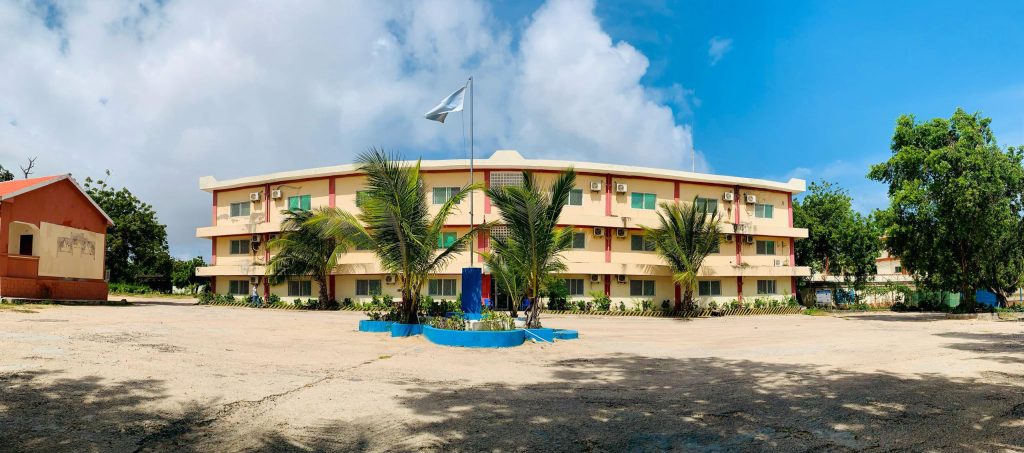1. Introduction
1.1 Background
The Somali Agricultural Regulatory and Inspection Service (SARIS) is the national agency responsible for official controls on plant health, seed certification, and agricultural inputs under Law (No. 32/2024). SARIS has the legal mandate to regulate seed quality, certification, and varietal release in line with the Seed and Plant Variety Release Law (No. 35/2024), the Plant Protection and Quarantine Law (No. 34/2024), and the Agrochemicals Control Law (No. 33/2024).
A reliable seed certification system is essential to guarantee varietal purity, genetic identity, and seed quality, ensuring that farmers access improved and trustworthy seed. Somalia is currently in the early stages of implementing its certification system, requiring expert technical support to strengthen operational procedures for field inspections, seed sampling, documentation, and quality assurance.
1.2 Ugbaad The Ugbaad Project (GCF-Funded)
The Climate Resilient Agriculture in Somalia (Ugbaad) Project is a seven-year program (2024–2031), financed by the Green Climate Fund (GCF) with a grant of USD 79.7 million and implemented by FAO in partnership with the Federal Government of Somalia. Ugbaad is Somalia’s first GCF-funded, single-country investment dedicated to strengthening agricultural resilience.
The project’s development objective is to enhance climate-resilient livelihoods and food security through:
- Restoration of 40,000 hectares of productive landscapes.
- Rehabilitation of irrigation canals and rural access roads.
- Improved access to water for over 900,000 people.
- Climate information services reaching nearly 1 million farmers and pastoralists.
- Strengthened institutional capacity to deliver climate-smart agriculture and seed system reforms.
The seed supply initiative under this ToR falls within Ugbaad’s component on sustainable input access and seed system strengthening, designed to ensure Somali farmers benefit directly from certified, climate-resilient seed varieties while building long-term demand for improved seed.
1.3 Rationale of Seed Certification Support
Seed certification ensures that seeds used by farmers is true-to-type, high quality, and free from major contaminants or diseases. Through inspections, sampling, and testing, the certification process protects farmers, strengthens food security, and builds trust in agricultural trade. It also enables Somalia to align with international obligations under ISTA, OECD, COMESA, IGAD and EAC harmonized seed regulations, which are prerequisites for integration into regional and global seed markets.
In 2021, Somalia developed a draft seed certification framework; however, it is now outdated and no longer aligned with recent legal and regional developments. With the passing of the Seed and Plant Variety Law and the establishment of SARIS as the national regulatory authority, there is an urgent need to review, update, and operationalize the certification framework to ensure consistency with the law and compliance with regional and international standards. Given that SARIS is a newly established institution with limited technical capacity, external support is essential to build credible systems and draw on best practices from neighboring countries with established certification regimes.
1.4 Purpose of this Terms of Reference (TOR)
This TOR defines the scope of work, deliverables, and qualifications required of a consultant who will support SARIS in strengthening and operationalizing the national seed certification system. The consultancy will focus on inspection, sampling, documentation, and quality assurance to strengthen Somalia’s seed sector in compliance with international standards.
2. Objective of the Assignment
2.1 Overall Objective
To strengthen the seed certification framework for Somalia that meets regional and international standards and assures farmers with high-quality seeds.
2.2 Specific Objectives
- Review, develop and standardize SOPs for field inspection, seed sampling, and certification.
- Support documentation, reporting, and traceability of certified seed.
- Strengthen quality assurance mechanisms in line with ISTA and OECD.
- Build institutional and technical capacity within SARIS for sustainable implementation.
3. Scope of Work
The consultant, in collaboration with SARIS, will undertake the following tasks:
a) Policy and Institutional Review
- Review seed certification provisions in Somali laws and regulations and institutional framework.
- Benchmark certification procedures against ISTA, OECD, COMESA, and EAC standards.
- Identify institutional and human resource capacity gaps.
b) Field Inspection Framework
- Develop SOPs for inspection at key crop growth stages and align with OECD standards
- Define inspection criteria for (varietal purity, isolation distance, pest/disease tolerance, and crop condition).
c) Seed Sampling and Laboratory Testing
- Prepare SOPs for seed lot identification, sampling methods, and labeling.
- Provide technical guidance on sample handling and submission to SARIS labs.
- Align with ISTA seed testing rules (purity, germination, moisture, health).
d) Documentation and Certification
- Design standardized checklists, forms, and certificates for seed certification.
- Develop a user-friendly seed certification manual to guide inspector and stakeholders through procedures.
- Recommend integration with SARIS’ digital systems for traceability.
- Train staff on record-keeping and reporting.
e) Quality Assurance
- Establish QA mechanisms including audits, monitoring, and corrective action protocols.
- Propose procedures for addressing non-compliance.
f) Capacity Building
- Develop and deliver training modules for SARIS inspectors and seed producers.
- Produce simple field manuals and user-friendly guides
Application Procedure
Interested candidates/consulting firms are invited to submit:
- A cover letter expressing interest and suitability for the assignment.
- Technical proposal outlining methodology and work plan.
- Financial proposal indicating consultancy fees and related costs.
- Curriculum Vitae (CV) of the lead consultant and team members (if applicable).
- Evidence of relevant assignments previously undertaken.
Applications should be submitted electronically to [email protected] and CC: [email protected] no later than September 16, 2025. Only shortlisted candidates will be contacted.
NB: MoAI/SARIS may withhold or delay payments for late, incomplete, or substandard deliverables, while timely and satisfactory submissions may allow faster processing.







